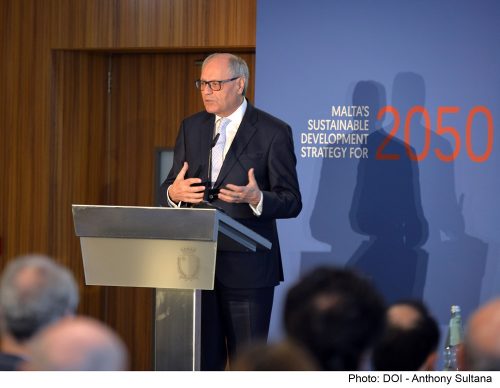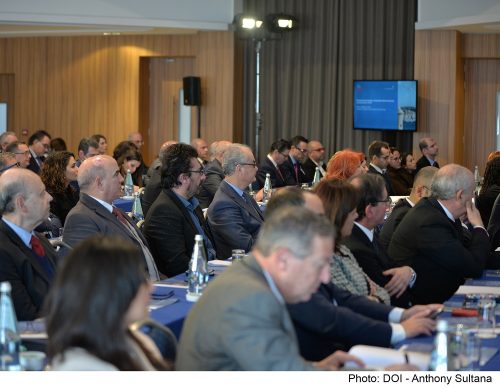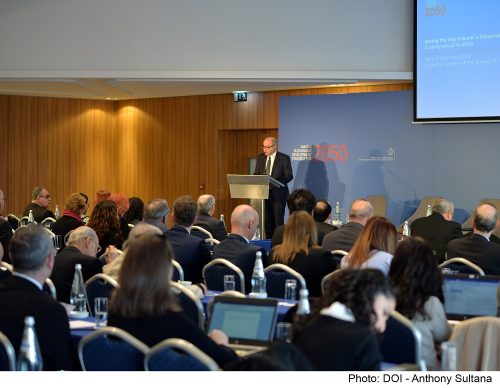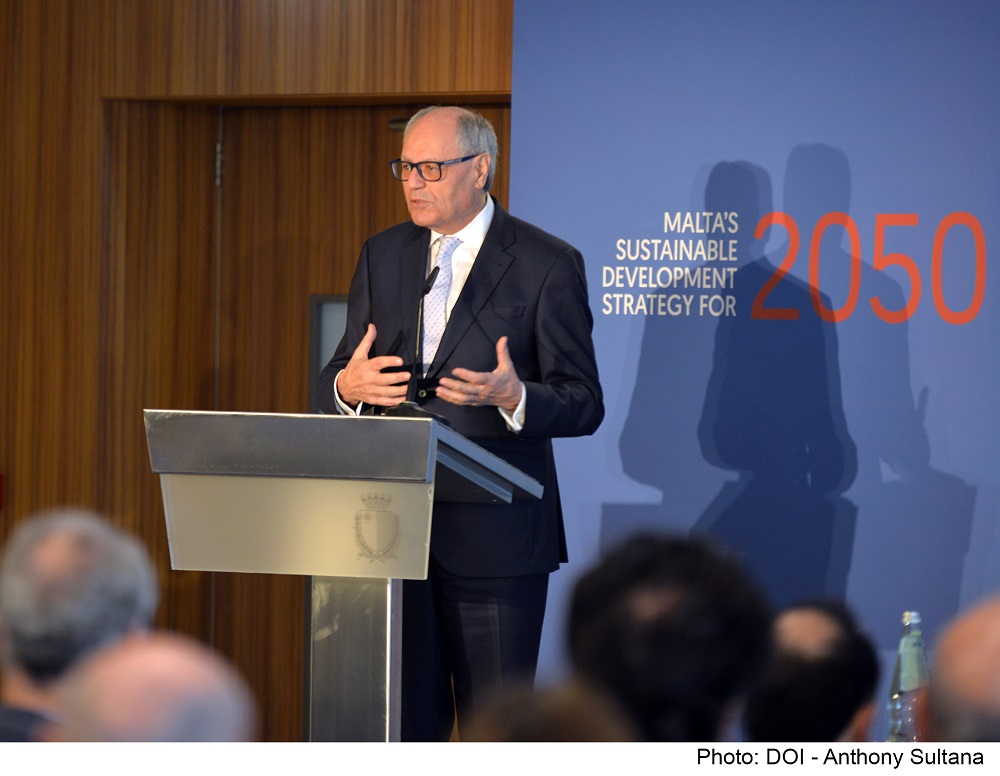The Ministry for the Environment, Sustainable Development and Climate Change organised a conference titled ‘Paving the way towards a Sustainable Maltese Economy – Looking ahead to 2050’. Minister for the Environment, Sustainable Development and Climate Change José Herrera and Minister for Finance Edward Scicluna delivered the opening speeches at this conference, the first of a series of events organised as part of the process of developing the Malta Sustainable Development Strategy for 2050. These conferences will serve as a platform to engage the public first-hand in the process of building an effective Sustainable Development Framework.
PRESS RELEASE BY THE MINISTRY FOR THE ENVIRONMENT,
SUSTAINABLE DEVELOPMENT AND CLIMATE CHANGE
AND BY
THE MINISTRY FOR FINANCE
Sustainable economic development advocates continued economic growth, an equitable distribution of local income, employment growth and enhanced competitiveness without endangering local fiscal stability, degrading the natural environment, or contributing to global climate change. Inherent in this is that it does not come at the expense of regressive social development and environmental protection for future generations.
Addressing those present, Minister José Herrera stated that the time is very much now for taking concrete action at the local level. The longer we wait, the more expensive it will be for our economy to re-adjust. He said that we need to learn to change our ways and live within environmental limits while maintaining a good quality of life. The next steps that the ministry will be taking in order to make Malta’s Sustainable Development Vision for 2050 a reality include a new Sustainable Development Strategy and Action Plan with short, medium and long-term goals.
Minister for Finance Edward Scicluna recounted the global political history of post-war development and environmental awareness, which led to the first environment summit in Stockholm in 1972 followed by the Rio Summit twenty years later in 1992. Sustainable development was more than a politically acceptable compromise between environment and development. He stated that although economists have the monetary and fiscal tools to slow cyclical inflationary booms but not to stop economic growth trends themselves. Way back in Rio, governments committed themselves to being pro-development and to choose the best way forward in a manner which met the current development needs with compromising the development needs of future generations.
Throughout this event, participants had the opportunity to discuss key policy areas for the sustainability transition including circular, low-carbon economy, social economy, sustainable finance, digital economy as well as research and innovation.



Monday 4th February 2019
